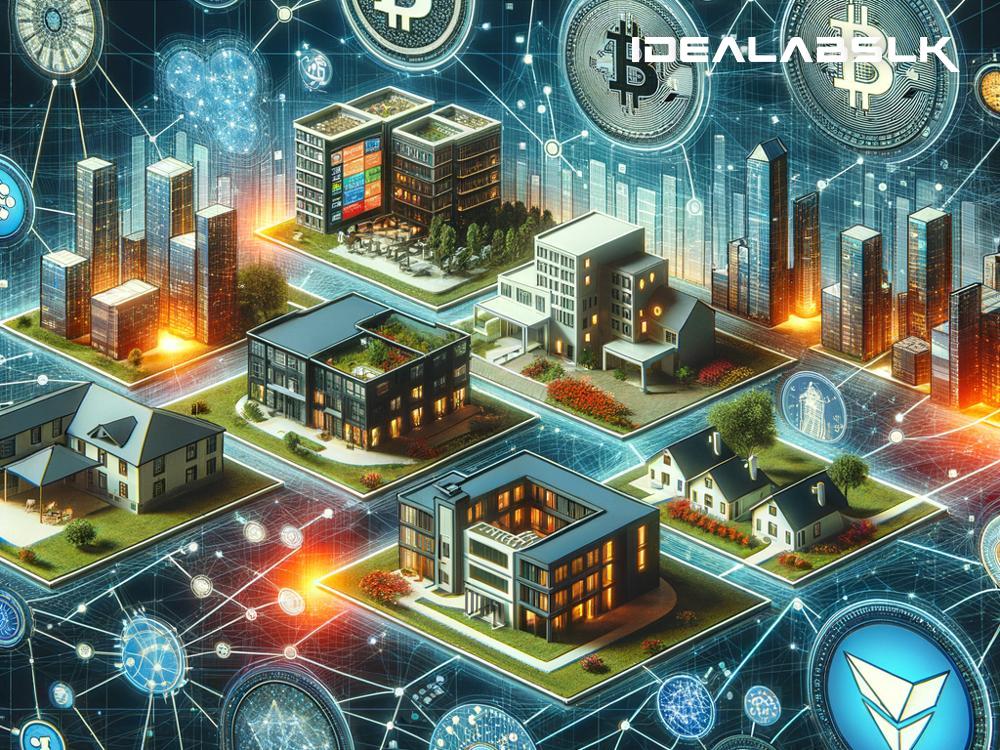Blockchain for Real Estate: Revolutionizing the Way We Invest in Properties
In recent years, the buzz around blockchain technology has grown louder, especially in the realm of real estate. This cutting-edge technology, best known for powering cryptocurrencies like Bitcoin, is now setting the stage for a major transformation in how we buy, sell, and manage property. It's all about offering real-time, transparent information to investors, making the whole process more efficient, secure, and reliable. But what does this really mean for you and me, especially if we're looking to invest in real estate? Let's break it down into simpler terms.
Understanding Blockchain and Real Estate
At its core, blockchain is a digital ledger – think of it as a highly secure, online record-keeping system. Each "block" of data is securely linked to the next, forming a chain. This makes it nearly impossible to alter information without everyone in the network noticing. When applied to real estate, blockchain could be a game-changer.
Today, investing in property involves a lot of paperwork, middlemen, and, unfortunately, room for errors and fraud. Blockchain can streamline this process by providing a transparent, accessible, and tamper-proof database of property records. Imagine having detailed property data, from ownership history to zoning information, available at your fingertips in real-time. That's the promise of blockchain for real estate investors.
Empowering Investors with Real-Time Data
-
Making Informed Decisions: With blockchain, investors can access a comprehensive and up-to-date record of a property’s history, including past transactions, current ownership, and even structural details. This information helps investors make more informed decisions, reducing the risk of fraud and costly mistakes.
-
Streamlining Transactions: Blockchain could significantly reduce the time it takes to close property deals. The technology can automate and secure the transfer of property titles and funds through smart contracts – self-executing contracts with the terms directly written into code. This means you could potentially buy or sell a property quicker than it takes to get a traditional bank loan approved!
-
Reducing Costs: Real estate transactions come with a lot of overhead, including fees for agents, lawyers, and banks. Blockchain has the potential to cut out some of these middlemen, lowering transaction costs. For investors, especially those just starting out, this could make real estate investing more accessible.
-
Ensuring Transparency and Security: One of blockchain's biggest advantages is its transparency. Since every transaction is recorded and verified by a network of computers, it's very difficult to manipulate data without detection. This transparency builds trust among parties and can prevent disputes. Additionally, the secure nature of blockchain technology protects sensitive information from hackers, making real estate deals safer for everyone involved.
-
Tokenization of Real Estate Assets: A fascinating aspect of blockchain in real estate is the concept of tokenization. This means dividing a property into shareable digital tokens that represent a stake in the real estate asset, similar to stocks in a company. Investors can purchase these tokens, making it easier to invest in high-value properties. This not only democratizes investment opportunities but also allows for easier management and trading of real estate assets.
Looking Ahead: The Future of Real Estate Investment
The integration of blockchain into real estate is still in its infancy, but the potential is huge. As technology advances and more players in the real estate market adopt blockchain, we could see a shift towards more transparent, efficient, and secure investment processes. This doesn't mean that traditional methods will vanish overnight, but rather, they'll evolve to incorporate the benefits of blockchain technology.
For investors, staying informed and open to new technologies like blockchain will be key to navigating this change successfully. The opportunity to access real-time property data can empower investors, whether seasoned or novice, to make better investment choices, contributing to a stronger and more resilient real estate market.
So, as we look to the future, the message is clear: blockchain technology is not just a fleeting trend in the real estate world. It is laying the groundwork for a smarter, more connected, and more transparent market. And for investors, this can only mean good things – more power, more information, and potentially, more profitable investments.

